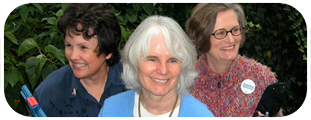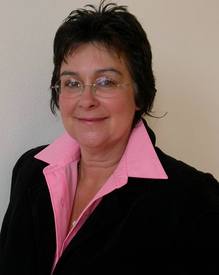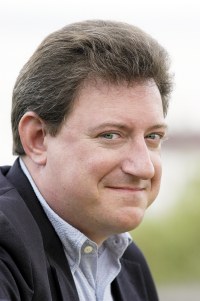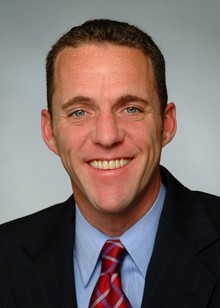 Many people think this race is a referendum on Paul Berendt's tenure as Chair for the last ten years. Paul was elected in 1994, another very bad year for Democrats both nationally and in this state. He was able to turn the Party around and figure out how to make it financially healthy. Democrats have done well in these last ten years in this state. Now, after a year when a massive number of new people have become more involved in the process and we had a rollercoaster of a post-election, the Democratic Central Committee will decide on Saturday whether to keep Paul as Chair or bring in new blood.
Many people think this race is a referendum on Paul Berendt's tenure as Chair for the last ten years. Paul was elected in 1994, another very bad year for Democrats both nationally and in this state. He was able to turn the Party around and figure out how to make it financially healthy. Democrats have done well in these last ten years in this state. Now, after a year when a massive number of new people have become more involved in the process and we had a rollercoaster of a post-election, the Democratic Central Committee will decide on Saturday whether to keep Paul as Chair or bring in new blood.
Paul understands much of the changing desires of the newly involved Democrats. The Party electors will have to decide if he understands enough. If he wins, he will have to buck the people around him and significantly improve the operations side of the Democratic Party in this state as well as keep the energy and enthusiasm of the people new to active Party involvement.
This is the last of the four candidates running for Chair whom we have interviewed. Read on for the full interview. Or check out our recent interviews with other candidates Greg Rodriguez, Kat Overman and Bill Phillips.
Q: What have you been doing to revitalize the Democratic Party in this state?
PB: Under my leadership, the State Party has been a conduit for harnessing the energy of the last year. I believe we have a wonderful State Party. It is an activist party, a populist party. We've done well. We have two U.S. Senators, the Governor and majorities in both Houses. The challenge for us is to consolidate our power and move clearly into being the majority party.
Q: How would you sum up what you did or learned?
PB: In the past, people have deferred the lobbying, the training, and the planning to others. They have invested power in the Chair. What we've seen this last year is that people want to have greater control over the decisions of the Party and what it stands for. We need to learn to work through committees, to find jobs for people to do that are right for them.
The turning point was the caucus process last spring. This brought a lot of people into the Party and people discovered or rediscovered that process. I believe 8 out of 10 people get involved in politics because of issues. People want to feel like they are able to be an advocate for an issue.
Q: What would you do as State Chair?
PB: My job is to create mechanisms for people to be directly involved in the precincts, and in communications, developing messages and fund-raising.
We have a good staff but now, instead of doing the work, they need to facilitate others doing it. It's been easier to do it ourselves but we need to change that.
I want to have more of an on-going presence in Olympia. We need to give our Democratic Governor and Legislature the cover they need to make things happen. Maybe we can have Issue Day at the state capital, where people come down and lobby for an issue that is important to them and do that maybe once a week while the Legislature is in session. I'm going to propose that to the Central Committee.
We have a Party structure. It works better some places than others. I think it's important that the State Party has something to do for those people who fall through the Legislative District cracks.
The Party already does big statewide events well. We have maybe half a dozen events a year which elected officials attend and talk with people and answer questions, i.e. the Crab Feed and PCO Training coming up in February. We do two major trainings a year, one of which is in Eastern Washington.
We still need to create more venues for people to plug into. The Howard Dean campaign used the Meetup forum well. Perhaps we can create a venue where people can help develop the Party platform through something like the Meetup process.
Q: Why should you be the Chair?
PB: That good news is that we have 4 good candidates this year. We are all friends. We are saying a lot of the same things. The issues are not that different. We all want greater field operations between elections, better communications and more involvement in Eastern Washington. We want to figure out ways to get more people to participate.
I've proven I can do this. I'm really good at tactics and tactics are important.
Q: How would you involve the other candidates if you win?
PB: I've always brought the other candidates from any race into the process to do whatever they want to do. I will meet with each of them and listen to them about the issues they want to address.



